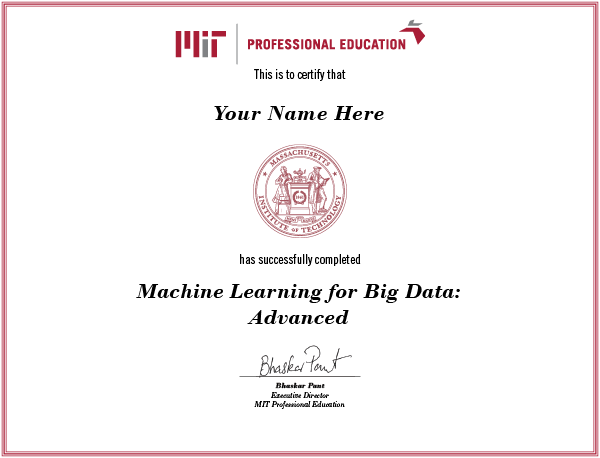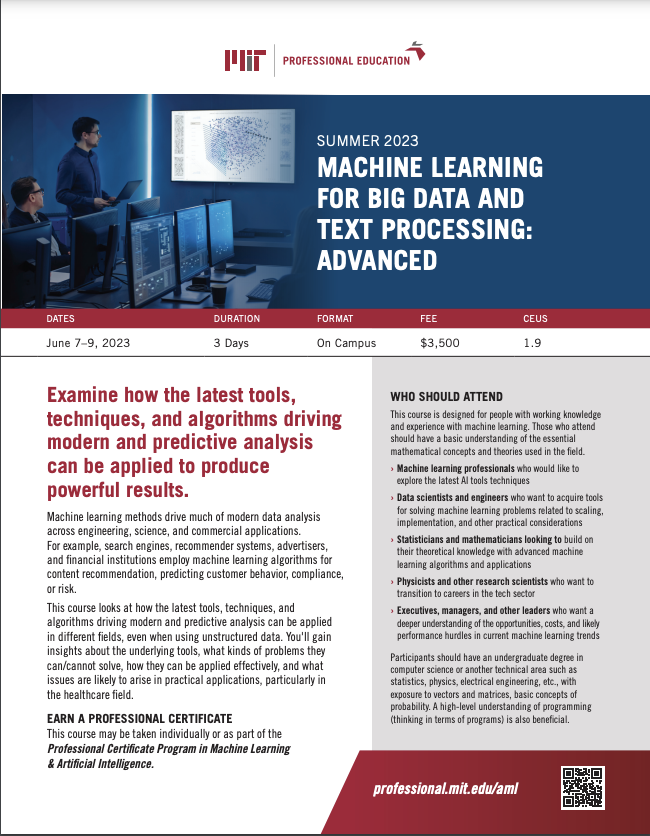Examine how the latest tools, techniques, and algorithms driving modern and predictive analysis can be applied to produce powerful results, even when using unstructured data. In this highly interactive course, you’ll gain insights into what kinds of problems these methods can and cannot solve, how they can be applied effectively, and what issues are likely to arise in practical applications, particularly in the healthcare field.
This course may be taken individually or as part of the Professional Certificate Program in Machine Learning & Artificial Intelligence.




